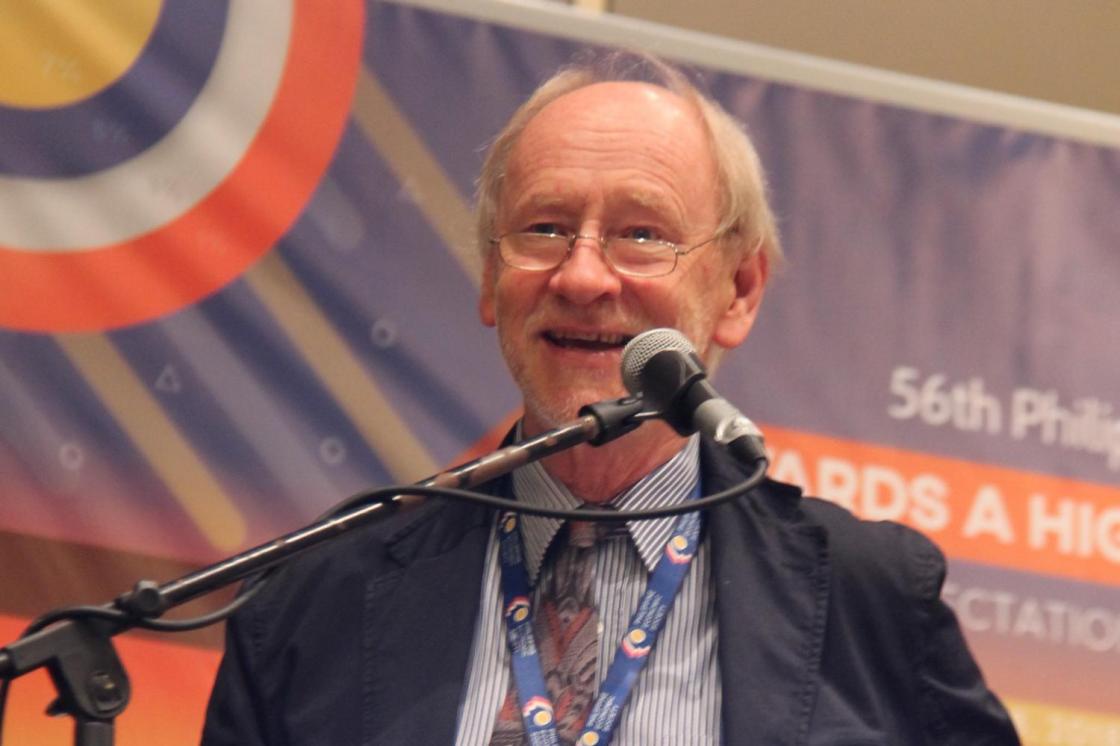
THE Philippines appears on track to sustain its growth path, although an uncertain global landscape coupled with domestic political risk could dampen prospects, an economist said.
Hal Hill, professor emeritus of Southeast Asian Economies at the Australia National University, said pockets of instability on both the domestic and external fronts could weigh on the country’s growth momentum, particularly if timely reforms are not installed by government.
“This is a paradox at the moment: it is a good time in the Philippines but it’s a very unstable, uncertain world economy,” Mr. Hill said in his keynote address for the annual meeting of the Philippine Economic Society yesterday, noting that domestic policy is “crucial” in driving growth.
He pointed out that the growing trade war between the United States and China is a major concern.
The Philippine economy grew by 6.1% in the third quarter, down from 6.2% in April-June, failing to meet market expectations. The slowdown was due to a drop in farm output which offset the buoyant services and industry sectors.
Mr. Hill said market watchers must look out for developments involving the country’s fiscal space, as well as political issues such as presidential appointments to key economic posts, resolving the Mindanao conflict, reforming food policy, and a possible shift to a federal form of government.
“Indicators thus far suggest that the strong economic momentum is being maintained,” according to the book The Philippine Economy: No Longer the East Asian Exception?, as edited by Mr. Hill and professors Ramon L. Clarete and Emmanuel F. Esguerra.
During the panel session, National Economic and Development Authority Undersecretary Rosemarie G. Edillon said the Philippines is experiencing a “higher growth trajectory,” while Bangko Sentral ng Pilipinas Assistant Governor Francisco G. Dakila, Jr. said the Philippines’ potential output has risen to 6-7% — roughly matching the current growth pace.
However, Mr. Hill flagged risks drawn from domestic policy, particularly from “very slow” reforms to the legal system and weak checks on the Executive. Sentiment may also be suffering from global concerns about human rights and perceived political instability here.
Ties with Congress could likewise make or break the administration’s investment agenda, as much relies on the passage of the annual budget and tax reform packages in order to shore up revenue for project funding.
The economist likewise pointed out possible frictions from international relations, especially after President Rodrigo R. Duterte appears to have turned his back on the European Union and the United States in favor of China.
“While the prospects for attaining the growth target seem favorable, as shown by recent economic performance, the risk of squandering opportunities is also very real,” the authors said. “The hostility expressed towards long-standing development partners early on is a case in point. So is the preoccupation with congressional investigations of doubtful value in terms of legislation.”
“In the meantime, attention is diverted from more urgent matters.”
In his book, Mr. Hill also pointed out that the Philippines “remains less open to trade and investment” compared to other Southeast Asian states. He noted that the country is slow to open up the economy to foreign participation, particularly with a “gradual but partial” approach towards liberalization.
 Philippine Economic Society (PES)
Philippine Economic Society (PES)